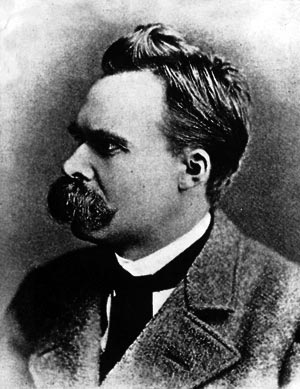 Image via Wikipedia
Image via WikipediaP.D. Ouspensky wrote a curious novel about recurrence. It was called The Strange Life of Ivan Osokin. A rather conceited young Russian visits a magician and requests that he may live his life over again, in order to avoid his original mistakes. Given the chance, Osokin throws it away, repeating each mishap and indiscretion to the letter. Eventually he finds himself back in the room with the magician. The old man solemnly lectures him, telling him that, if he wishes to obtain proper knowledge, he must pay the price:
"A man can only be given what he can use; and he can only use that for which he has sacrificed something. This is the law of human nature. So if a man wants to get help to acquire important knowledge or new powers, he must sacrifice other important things to him at the moment... If you could change something in yourself, you would be able to use this knowledge for your own advantage."
The magician knew that the power to live one’s life again would be meaningless if one did not honestly get to grips with the laws and limitations of the universe. Given the opportunity, all Osokin did was drift into his former pattern, ploughing an identical furrow of indulgence and futility.
TOWARDS THE OVERMAN
How does one avoid the trap of Osokin? How does one take anything forward? Ouspensky thought it possible to step out of present time - or being locked in states (sorrow, joy, suspicion, etc.) of mind - into eternal time, in which one realises, imaginatively, all the potentials of any one given moment. "Our mind," he wrote, "follows the development of possibilities in one direction only. But in fact every moment contains a very large number of possibilities. And all of them are actualised, only we do not see it and do not know it. We always see only one of the actualisations, and in this lie the poverty and limitation of the human mind. But it we try to imagine the actualisation of all the possibilities of the present moment, then of the next, and so on...[we] shall understand the infinite richness of time..."
All our possible lives are being lived out somewhere! What evidence has Ouspensky to support this? We might categorise him as an early advocate of the parallel universe - or parallel universes - theory, but Ouspensky, together with his one-time teacher, Gurdjieff, was basically an evolutionist, with a vision of how man might take things forward by expanding consciousness. From watering the inner time-seeds and perceiving the myriad levels of the universe, Ouspenksy had the idea of growing a Superman or ‘super-conscious individual’.
From what experience did Ouspenksy derive these special insights? In some ways, he was ahead of his time, anticipating the many-stranded, perspectivial universe that quantum physics presents us with today. Perhaps such things are grasped through a kind of ‘systematic derangement of the senses’, to borrow Rimbaud’s phrase. Like other writers and thinkers of his time, Ouspensky had experimented with nitrous oxide or ‘laughing gas’, using it as a trigger to explore ‘oceanic’ modes of being, and quite a number of spiritual insights and perceptual travelogues were induced by gulping down this anaesthetic together with deep draughts of air.
Earlier, Nietzsche had also forged a vision of his own time-emancipated ‘overman’ or Superman who, having freed himself from shackles and constraints, accepted life and its pains. Open towards the world, prepared to trust in chance and frankly pursue his ends, Nietzsche’s Superman represents the opposite of the Christian idea. He is not meek, does not passively accept his lot or glory in poverty or humility. In him the vices of lust and egotism are raised and concentrated to the level of sacrament. "Based on the premise of a God-less world," wrote J.P. Stern, "the Superman embodies the enhancement of man’s untrammelled will to power under the quasi-religious dispensation of ‘eternal recurrence’ of the same."
Certain sustained rhapsodic passages in Nietzsche’s writing, revering and idealising this figure, struck a chord in the heart of Nazi propagandists. Adolf Hitler was seen to have placed himself beyond conventional morality and considered he had a special dispensation to act with summary ruthlessness: hence the ‘Superman’ notion is the part of Nietzsche’s philosophy that has been more thoroughly attacked, discredited and misunderstood than any other.
Nietzsche maintained that Supermen had surfaced throughout history, stretching back into the infinity of the past, stretching forward into the infinity of the future. The real test of the Superman, he maintained, was his ability to exult in the process of eternal recurrence - of being able to love this life, this earth, this body, and see it as sufficient end in itself. One might call this doctrine ‘spiritual materialism’http://abrax7.stormloader.com/VisionsNE.htm


![Reblog this post [with Zemanta]](http://img.zemanta.com/reblog_e.png?x-id=47a48cd6-1986-4853-ae2a-f357088a462f)
No comments:
Post a Comment